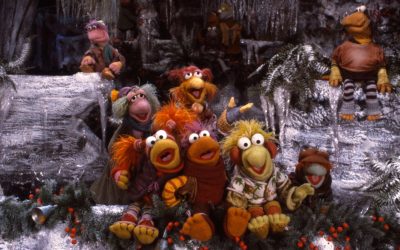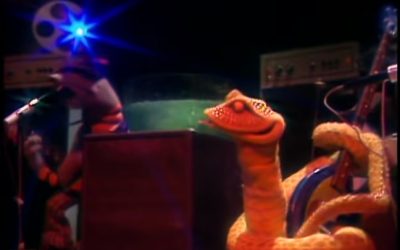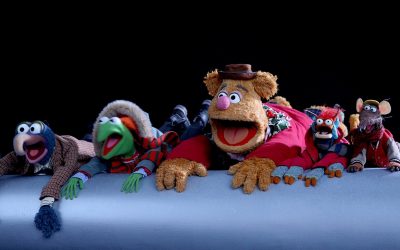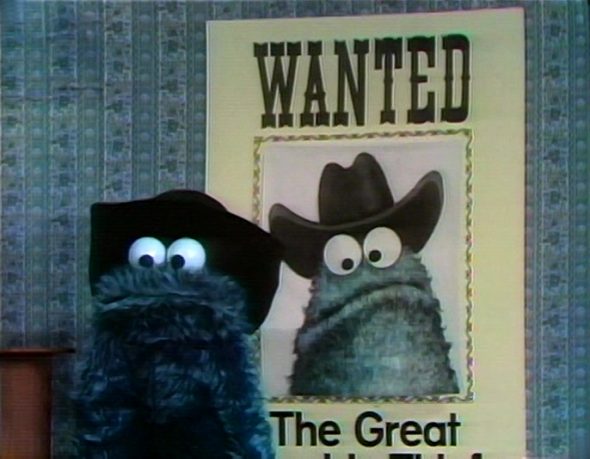
When it comes to movie genres, I try to be open-minded. I’m aware that there are good movies in every genre, from horror to sci-fi to historical culinary romantic tragicomedy. And yet, for some reason, I always feel a twinge of uncertainty when I think about watching Westerns.
I’m aware that Westerns are one of the great American storytelling modes, and that there are hundreds of good and even great Western films. Still, when I think “Do I want to watch this Western?” my first instinct is usually “Ehhhh, I don’t know.” But then when I actually watch the movie in question, I almost always like it. It’s true of High Noon and The Searchers and Unforgiven and A Fistful of Dollars, and if I ever get around to watching The Outlaw Josey Wales I’m sure it’ll be true of that one too.
And yet, I always feel that hesitation when I first think about watching a Western. Just recently I figured out why. It’s because the first Westerns I ever encountered were on Sesame Street, and no other Westerns can ever live up to them.
For many years, the collection of endlessly repeating sketches that aired on Sesame Street included a series of scenes set in an Old West saloon. These sketches mostly debuted throughout the 1970s and ‘80s, but continued to be recycled into the show for years afterward. By the ‘70s, Westerns were no longer an exceptionally popular genre, but they had been ubiquitous a few decades earlier – presumably during the childhoods of the writers who crafted these segments.
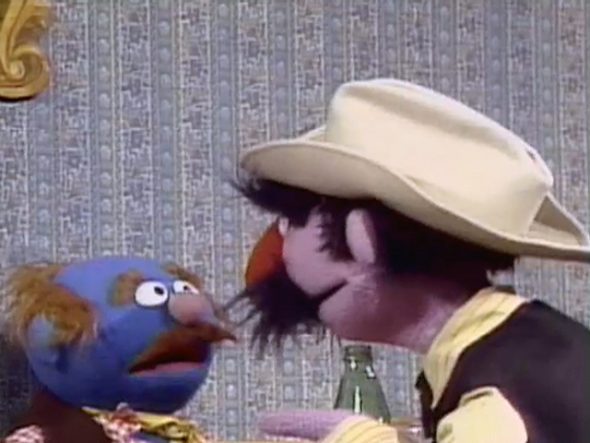
The sketches include many of the familiar elements of the Western genre. There are menacing bad guys, innocent townspeople, swinging saloon doors, lots of talk of trains and stagecoaches, and so much facial hair.
The thematic elements are also similar. Outside of Sesame Street, Westerns frequently focus on morally gray situations. The “heroic” sheriff of a town may be a ruthless, impulsive killer. An “outlaw” who steals supplies from a doctor might be doing so because he has a sick child. A bank robber might just be a guy who really, really, really likes money.
The Sesame Street Westerns carry on this tradition with a series of scary “bad guys” who turn out to be not so scary after all. They have frightening nicknames and everyone in town is terrified of them. I may or may not have watched some of these while covering my eyes. But these dudes almost never turn out to be as sinister or bad as anyone thinks they are.
So yes, the Sesame Street Westerns are as good as the best of the classic film Westerns. But the Sesame Street segments take things a step further: They’re educational. All these years, every time I’ve watched a Western, I’ve felt like something was missing, and that was it. Not a single one of John Ford’s masterpieces taught me a new word or a letter of the alphabet.
So yes, the Old West sketches on Sesame Street are the best Westerns. Um, not to be confused with the Best Western motel chain.
There are a few of them that really stand out in my memory of my Sesame-watching years. The earliest of these sketches identified by Muppet Wiki is the classic “Great Cookie Thief” piece, which is perhaps the most famous because it was adapted as a storybook. This one introduces the saloon setting that will be the standard backdrop as they go on.
This sketch makes a fascinating choice. In casting the beloved character Cookie Monster as the Great Cookie Thief, it encourages us root for the villain. We’re amused and satisfied when the thief fools the townspeople.
Another one that really stands out in my memory is the one where Sinister Sam busts in because he’s just learned that somebody bought the last box of crayons… and he wants to know why.
Sinister Sam is a genuinely fearsome figure, although his search for the crayons turns out to be benign. This sketch also makes me wonder about the popularity of crayons in the Old West. Was it especially hard for general stores to keep them in stock because cowboys wanted to color in their coloring books?
Then there’s the one where Bad Bart is coming to give somebody what he deserves — when the cow moos four times:
I love the sound effects of Bad Bart’s bootsteps and jangling spurs.
Perhaps the most intense of the whole series is the one where Bad Bart (but not quite the same Bad Bart as before) comes to the saloon in search of Marshal Earp so he can give her a surprise.
It’s pretty progressive for Sesame Street to include a woman as a marshal. And her refusal to be intimidated by Bart is inspiring. Marshal Earp is my Favorite Muppet of the Moment. And hey, Muppet Wiki tells me that she was voiced by Marilyn Sokol and puppeteered by Jane Henson! Neat!
There are a few other Western sketches, although not quite as many as I would have guessed. As was the case with everything else on the show, segments were repeated and re-repeated dozens of times over the years.
Throughout the sketches, there’s talk of “itchy trigger fingers” and “shootin’ parties.” The characters say things that almost sound like cursing, like “dagnabbit” and “I’ll be goldarned!” It’s cliché at this point to watch a children’s show from the 1970s and proclaim that you’d never see this kind of stuff today, but: You’d never see this kind of stuff today.
I still have a lot of gaps in my viewing of classic Westerns. Someday I’ll get around to seeing Stagecoach, and Rio Bravo, and The Man Who Shot Liberty Valance. But for now, I kinda just want to watch that “Cookie Thief” sketch again.
P.S. You know what else is great? The book Tales of Sesame Gulch, which imagines all the familiar Muppet characters living in an Old West version of Sesame Street. I should write about that someday.
Click here to be the fastest draw on the Tough Pigs forum!
by Ryan Roe – Ryan@ToughPigs.com

